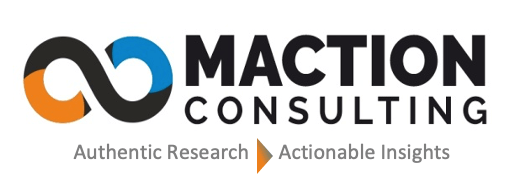Uncertainty has become the new normal in today’s volatile corporate environment. Because of economic ups and downs, technology developments, or global pandemics, businesses are constantly compelled to tread new seas. Even though this unpredictability can be frightening, businesses can prosper in these conditions if they build the correct plan and use an effective research method. In this piece, we’ll look at optimizing your research to avoid commercial ambiguity while keeping your business agile and fluid.
Understanding the Nature of Business Uncertainty
Because of its unpredictability, business has become a familiar companion. Businesses have evolved due to the deep relationships between global events, technological advancement, and economic variables. Stability and predictability have given way to an unpredictability that reigns supreme.
Uncertainty in business is more than just an abstract concept; it refers to unforeseen events that can affect a company’s success or failure. Economic uncertainty, geopolitical turbulence, changes in consumer behaviour, technology breakthroughs, and even natural calamities can all affect this unpredictability. Due to the uncertainty cloud, businesses need help to plan and define long-term goals.
Business uncertainty stems from the fact that the future is intrinsically unpredictable. Despite the inherent uncertainty, firms must decide how to allocate resources, develop strategies, and make critical decisions. This needs a paradigm shift in market research agency methodology.
Manage Business Uncertainties Through Research Optimization
In today’s changing corporate landscape, uncertainty reigns supreme. Businesses must effectively navigate through the fog of unpredictability using the power of research as a guiding beacon. Businesses that improve their research methods and tactics may securely navigate turbulent waters. Let’s examine the tactics:

1. Adopt a growth mindset
When circumstances are unpredictable, having a growth attitude is crucial. A growth mindset sees problems as opportunities for development and learning. Businesses with a growth mindset welcome change as an opportunity to advance and get better instead of dreading it.
2. Agile Methodology
In times of uncertainty, the conventional, linear research methodology may not be appropriate. Agile project management techniques impact and are revised and modified continuously in agile research. This strategy allows you to swiftly gather data, change research questions, and make informed decisions in a continually changing environment.
3. Keep an eye out for patterns and warning indicators
Maintaining awareness of industry trends and change antecedents is critical for navigating uncertainty. Create monitoring systems for trade magazines, social media, and pertinent news. You must stay updated and informed about events that may affect your business using tools such as Google Alerts, social media listening platforms, and industry-specific newsletters.
4. Industry-Related Research
Your clients may be a valuable source of information in uncertain times. Participate in customer-focused research projects like focus groups, interviews, and market surveys. Recognize the subtle differences in their needs, preferences, and trouble places. This knowledge can guide changes made by your organization and aid you in producing products and services that currently meet consumer demand.
5. Making scenario plans
Creating several plausible future scenarios and developing answers for each one is the process of planning scenarios. You can decrease the impact of unforeseen occurrences by preparing your firm for various outcomes. Create a range of situations and corresponding action plans with your team.
6. Collaboration in Research
In unpredictable times, collaboration might be a game changer. Collaborate with businesses, academic institutions, or industry experts to pool resources and insights through market surveys. Collaborative research will expand your knowledge base while also improving your problem-solving abilities.
7. Data-Driven Planning
When navigating tumultuous waters, data serves as your compass. Before drawing judgments, gather and analyze the relevant data. Consider prior performance, market developments, and consumer feedback when revising a strategy. Data analytics software and business intelligence platforms are two technologies that can help analyze vast amounts of complex data.
8. Adaptable Research Objectives
While having clear study objectives is vital, be prepared to change them as new knowledge becomes available. When your study objectives are flexible, you can take advantage of last-minute opportunities and work around problems that could have been more obvious.
9. Exploration and technology
Creative solutions are frequently required in times of uncertainty. Encourage an experimental culture in your company. Spend money on Skunkworks initiatives or innovation centres where employees can try new ideas without fear of failure. Understanding the present isn’t the only purpose of the study; the future should also be shaped.
Conclusion
Research must be strategic and flexible to deal with the commercial environment’s insecurity. Agility, customer-centricity, collaboration, and data-driven decision-making can help businesses thrive in rapidly changing environments. Always keep in mind that uncertainty creates both opportunities and challenges. Those who use the study to guide their decisions will survive the experience stronger and more forgiving. To steer your company toward a successful and adaptable future, accept the unknown, make the most of your market research agency efforts, and accept the unknown.


